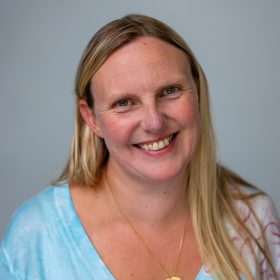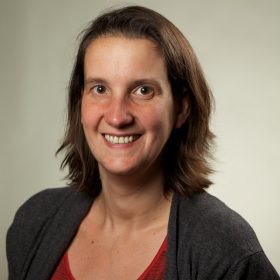What is Intergenerational Practice?
Intergenerational practice aims to bring people together in purposeful, mutually beneficial activities which promote greater understanding and respect between generations and contributes to building more cohesive communities. Intergenerational practice is inclusive; building on the positive resources that younger and older people have to offer each other and those around them.
Bringing people of different generations together to take part in activities and projects such as gardening, reading or music has been shown to be helpful for both older people and children and young people. Projects have been shown to reduce feelings of loneliness, increase feelings of connection and understanding and to provide a sense of meaning and purpose to those who take part. We want to find out more about intergenerational activities and how they could be used in our health and social care system.
What we did?
We sought to address this research question: What is the role of intergenerational learning and practice in health and social care from the perspective of older people?
We worked closely with Fiona Campbell based at Newcastle University and colleagues based at the University of Sheffield who led a separate, but related, project exploring the effect of intergenerational learning and practice on the social and mental wellbeing of children and young people.
How did we do this?
We conducted the project in three stages:
- In the first stage we brought together all the available research and evaluations to help us to understand:
– the range of intergenerational activities available,
– the ways in which the effects on older people of taking part in intergenerational activities have been measured,
– the types of research study that have been used to look at intergenerational activities and,
– the gaps in our knowledge. - In the second stage worked with a group of people involved in delivering and receiving intergenerational activities and those who commission this type of programme to decide a) what the most important research questions are from the perspectives of older people and b) where we need more information. As a group, we will decide which question(s) to answer in the third stage of the project, and how we should answer them.
- In the third and final stage, we sought to answer one of the research questions using best practice methods and the evidence and evaluations found during the mapping stage.
The voices of people involved in delivering and receiving intergenerational activities will be at the heart of every stage of the project.
What have we produced during our research?
Evidence and Gap Map
We have produced an Evidence and Gap Map of intergenerational activity to identify and collect all the available evidence on the use of intergenerational activities. By identifying all the available evidence we hope to develop an understanding of what impact intergenerational activities might have on the health and wellbeing of older and younger people and issues such as loneliness. This understanding could help to shape future research and inform decisions made by policy-makers about including intergenerational interventions in health and social care services. The resulting evidence and gap map will help researchers and decision makers to access the available research.
We were invited to attend the Generations Working Together International conference to deliver a workshop on our map.
How to use the iGEN Evidence and Gap Map
Researcher Fiona Campbell explains how to navigate the map
Podcast
Dr Fiona Campbell speaks to collaborators and members of the public in relation to Intergenerational Research in the latest ScHARR Communicable Research Podcast.
Listen here:
Video
‘Intergenerational practice is the beginning of an inclusive society’; collaboration and engagement, evidence mapping, and insights from a current project.
- We shared our learning on intergenerational practice in celebration of Global International Week.Watch the video:
Blog
We write regular blogposts about our work. You can visit our blog here.
In this blog post we reflect on our visit to Glasgow to present at the Generations Working Together International conference:
Read Sharing, learning and linking
While here we share some of the findings from the Evidence and Gap map and some of our subsequent reviews:
Related publications

What is the effect of intergenerational activities on the wellbeing and mental health of older people?: A systematic review
Download the PaperNon-familial intergenerational interventions and their impact on social and mental wellbeing of both younger and older people—A mapping review and evidence and gap map
Download the Paper
PROTOCOL: Intergenerational interventions and their effect on social and mental wellbeing of both children and older people—A mapping review and evidence and gap map
Download the PaperLinks and downloads
- Newsletter iGEN Newsletter May 2022
- Report Non-familial intergenerational interventions and their impact on social and mental wellbeing of both younger and older people: A mapping review and evidence and gap map
- Plain English Summary Large evidence base for impact of intergenerational interventions involving young and old, but many gaps in research
- Plain Language Summary in Spanish Non-familial intergenerational interventions and their impact on social and mental wellbeing of both younger and older people: A mapping review and evidence and gap map
- Evidence and Gap Map Non-familial Intergenerational Interventions and their Impact on the Social and Mental Wellbeing of Younger and Older People a Mapping Review and Evidence and Gap Map
- Briefing Paper What is the role of intergenerational activities in health and social care?
- EST Blog Sharing, learning and linking
- The map is now available as resource on the Universidad de Granada website Intergenerational evidence and gap map: ¿qué efectos tienen las intervenciones intergeneracionales?
Collaborators
- Ellie Robinson Carter
- Stuart Cohen, NHS Cornwall and Isles of Scilly Integrated Care Board
- Richard Sharpe, Cornwall Council
- Ronald Amanze
- Fiona Campbell, The University of Sheffield
PenARC Staff

Rebecca Whear
Senior Research Fellow
